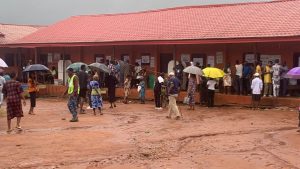COVAX offers hope of vaccine equality with roll out across Africa

“We have been fighting this virus, but we have been fighting it with rubber bullets,” said Kenya’s Minister of Health Mutahi Kagwe. “But what we have received here is equivalent, metaphorically speaking, to acquisition of machine guns, bazookas, and tanks to fight this war against Covid-19.” Kenya received the initial shipment of just over 1 million doses Tuesday through the COVAX program, a global vaccine-sharing initiative to reduce vaccine inequality with discounted or free doses for lower-income countries. Weeks after many wealthier nations began receiving their first doses, COVAX got underway last week starting with a delivery to Ghana. Days later, the country’s president became the first to publicly get vaccinated through the program. “It’s important that I set the example that this vaccine is safe by being the first to have it,” Ghanaian President Nana Akufo-Addo said Monday, as he kicked off a country-wide vaccine drive. Ghana and Kenya, as well as Rwanda, Senegal, Nigeria, the Ivory Coast and the Democratic Republic of Congo, are among those to receive their first vaccines in recent days as COVAX rolls out across Africa. Reported coronavirus deaths there remain lower than other continents, surpassing 100,000 last month, according to Johns Hopkins University data. But a second wave of infections is overwhelming hospitals as many African nations find themselves far behind other parts of the world in the race to inoculate against Covid-19. COVAX coordinators hope that will soon change as access in developing countries continues to accelerate. “We’ve delivered 10 million doses in fourteen countries so far, and we will now be doing at least another 10 million in the next week and scaling up from there,” Dr. Seth Berkley, the CEO of Gavi, The Vaccine Alliance, told CNN. “So, yes, not enough doses and not as quick as we would like. It took us 83 days from the first jab in the UK to the fist jab in Africa, but now we’re off to try and get as much of this out as we can.” COVAX, run by a coalition including Gavi and the World Health Organization, uses donations from governments and multilateral institutions to buy vaccines for poorer nations that can’t afford contracts with major drug companies. The program has secured vaccines from AstraZeneca, Pfizer-BioNTech and the Serum Institute of India, with hopes of additional doses from companies currently working to get regulatory approvals. But getting enough supplies has been difficult, in part because wealthier countries ordered more than they need.”The original challenge was that, initially, large orders were put in place that locked up lots of doses,” Berkley said. “It’s estimated that there are about 800 million more doses bought by countries than they need based on their population, and another 1.4 billion in options. So, our hope is that some of those will either be donated or they will release their place in the queue, so we can make sure we make vaccines available to everyone else.” Another barrier to speedy vaccine delivery to poorer countries may be drugmakers’ reluctance to waive some intellectual property rights on the vaccines they’ve created. “Now is the time to use every tool to scale up production, including licensing and technology transfer, and where necessary, intellectual property waivers,” WHO Director-General Dr. Tedros Adhanom Ghebreyesus said at a UN coronavirus briefing last week.”When temporary waiver of intellectual property is raised, we see a lack of cooperation and even serious resistance. To be honest, I can’t understand this because this pandemic is unprecedented. The virus has taken the whole world hostage.” Despite delays, COVAX aims to make vaccine distribution as equitable as possible. Of more than 180 countries in the program, 92 qualify to receive free or discounted vaccinations. By the end of 2021, Gavi said COVAX plans to deliver about 2.3 billion doses to its participants, 1.8 billion of which would go to the world’s poorest countries, most (1.3 billion) at no cost.




